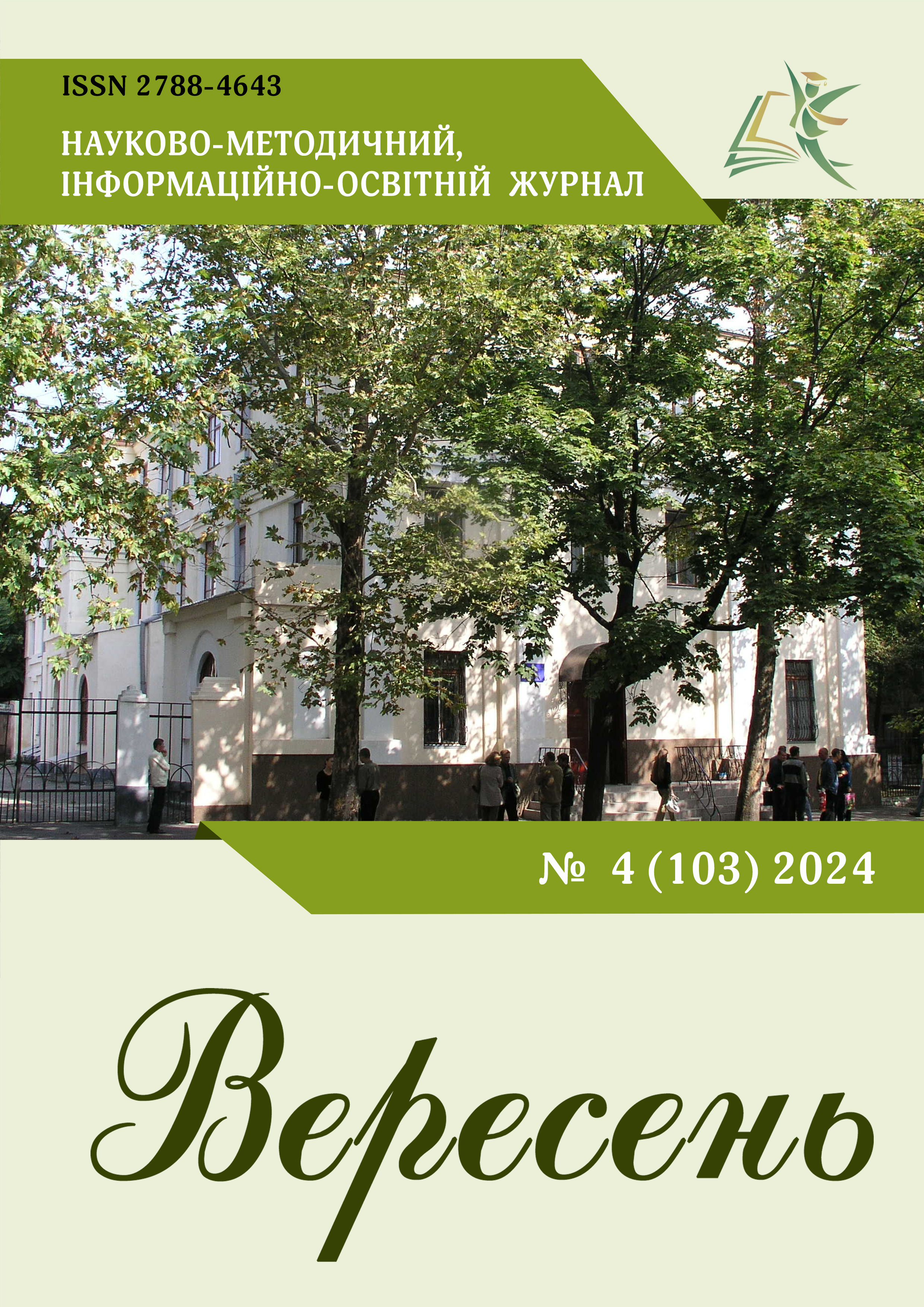TEACHING ALGEBRA THROUGH STEAM: A WAY TO DEVELOPING 21ST CENTURY SKILLS
DOI:
https://doi.org/10.54662/veresen.4.2024.02Keywords:
algebra, critical thinking, interdisciplinary connections, 21st-century skills, STEAMAbstract
The article is devoted to implementing STEAM methods in the teaching of algebra. It promotes the development of 21st-century skills, such as critical thinking, creativity, collaboration, and problem-solving. International experiences with STEAM integration in education, demonstrating successful practices in using interactive methods and digital tools for teaching algebra, are analyzed. Emphasis is placed on interdisciplinary connections and the development of complex competencies in students. The importance of using mathematical models, project-based activities, and simulations, which help students better understand abstract concepts and apply them in real-world contexts, is highlighted. For the first time, approaches to incorporating algebra into the components of STEAM are summarized, and the potential for developing 21st-century skills through the subject’s content is outlined. An important focus is the teacher’s role in creating an interactive learning environment that considers students' interests and skill levels. To achieve this, teachers must possess knowledge not only in mathematics but also in other STEAM disciplines and be well-versed in modern pedagogical technologies and approaches. Teachers must be able to adapt tasks to students' proficiency levels, consider their interests and abilities, and use an interdisciplinary approach to deepen the educational experience. Real-life examples, historical facts, and scientific experiments add valuable context to lessons, motivating students to engage actively in learning. Examples of applying the STEAM approach in algebra topics, such as primitives and integrals, are provided through practice-oriented problem-solving tasks. The article also includes class examples where students, acting as research mathematicians, solve problems involving integral calculations and function analysis, fostering creative and analytical skills. The STEAM approach is geared towards training a new generation of innovators capable of combining technical knowledge with creativity and adaptability in a rapidly changing world.
References
Akgündüz, D., Ertepınar, H. (2015). STEM Eğitimi ve Türkiye Raporu. İstanbul: Scala Basım, 2015, 35 (eng).
Dare, E. A., Keratithamkul, K., Hiwatig, B. M. & Li, F. (2021). Beyond Content: The Role of STEM Disciplines, Real-World Problems, 21st Century Skills, and STEM Careers within Science Teachers’ Conceptions of Integrated STEM Education, 11, 737. DOI: https://doi.org/10.3390/educsci11110737 (eng).
Johnson, C. C., Mohr-Schroeder, M. J., Moore, T. J. & English, L. D. (2020). Handbook of Research on STEM Education. Routledge. DOI: https://doi.org/10.4324/978042902138 (eng).
Kavak, Ş. (2023). The Evolution and Global Significance of STEM Education in The 21st Century. The Journal of International Scientific Researches. 8(3), 410–415. DOI: https://doi.org/10.23834/isrjournal.1342255 (eng).
Marope, M., Griffin, P. & Gallagher, C. (2017). Future Competences and the Future of Curriculum A Global Reference for Curricula Transformation, UNESCO-IBE, 59 (eng).
Ofitsiinyi zvit pro rezultaty NMT u 2023 rotsi. Tom II (2023). [Official report on NMT results in 2024. Volume II] [Elektronnyi resurs]. Retrieved from: https://testportal.gov.ua/wp-content/uploads/2023/08/ZVIT-NMT_2023-Tom_2.pdf, 39 (ukr).
Ofitsiinyi zvit pro rezultaty NMT u 2023 rotsi. Tom II (2024). [Official report on NMT results in 2024. Volume II] [Elektronnyi resurs]. Retrieved from: https://testportal.gov.ua/wp-content/uploads/2023/08/ZVIT-NMT_2023-Tom_2.pdf, 40 (ukr).
Pohromska, H. S., Makhrovska, N. A. & Rohozhynska E. K. (2024). Formuvannia piznavalnoi motyvatsii uchniv zasobamy STEAM-osvity pid chas navchannia heometrii [Formation of students` cognitive motivation by means of STEAM education during geometry education]. Veresen, 3 (102), 46–59. DOI: https://doi.org/10.54662/veresen.3.2024.05 (ukr).
Shevchenko, O. M. (2023). Rol STEAM-osvity u formuvannia kreatyvnosti y innovatsiinoho myslennia zdobuvachiv osvity [The role of STEAM education in the formation of creativity and innovative thinking of students]. Naukovi innovatsii i peredovi tekhnolohii, 2023, 7, 486–494 (ukr).




